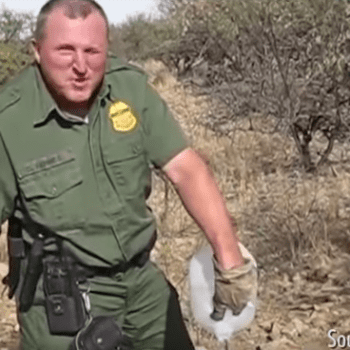The “Pledge of Allegiance” is one of those issues that surfaces in the news consistently– usually regarding debate over the line “under God”. Conservative Christians want to fight to keep “under God” in the pledge, while secularists and others prefer it be removed, thus restoring the pledge to its original state.
Because the pledge has been recited at the start of every day in nearly every school across the country, questioning this practice has been something that Christians on a large scale have failed to do. As a result, it has become so ingrained in our culture that recently a teacher in NJ who was not having her students recite the pledge was accused of “indoctrinating” them (which is odd– refusing to participate sounds like the opposite of indoctrination to me.)
However, I think we’re having the wrong discussion on this issue entirely. Instead of a constant cultural debate over the wording of the pledge, I think a better question is:
“Should a Christian recite the pledge of allegiance at all?“
Admittedly, I never once asked myself this question until the last year or two. Once I really started to consider the issue from all sides, I was actually really disappointed that it had taken me so long to actually see this issue for what it was. In the end, I have become convinced that reciting the Pledge of Allegiance is something that a Jesus follower probably shouldn’t do.
First off, the word pledge means “A solemn binding promise to do, give, or refrain from doing something”, which in and of itself should raise some concerns. In Matthew 5:34 Jesus teaches his disciples that followers of his should not take oaths at all– that we should simply let our “yes mean yes and no mean no”. While one might debate whether or not a “pledge” is the same thing as an “oath”, I think in reality they most certainly are. While pledge is defined as “a solemn binding promise”, an oath is defined as “a solemn, formal declaration or promise to fulfill a pledge, often calling on God, a god, or a sacred object as witness.”
Personally, I don’t see how making a pledge is any different than taking an oath– and on that matter, the teachings of Jesus seem pretty straight forward when he said, “But I tell you, do not swear an oath at all.”
Secondly, I think it is important to ask “What or who are we making a pledge to?”
In the Pledge of Allegiance, we are making a solemn, binding promise of loyalty “to the flag of the United States of America and to the republic for which it stands”.
This means, first we are taking an oath– something Jesus taught us not to do, and secondly, as we take this oath we are not swearing our loyalty to Christ but instead to an earthly kingdom.
So the question becomes: how can a follower of Jesus swear their loyalty to anything or anyone other than Jesus himself?
While I love my country, I can no longer in good conscience swear my loyalty to her– because my loyalty is solely with Christ and his Kingdom. I will be a good and supportive citizen in the country I live, so long as those aspects are consistent with the Kingdom Jesus came to bring to earth. But the moment those two no longer line up? My loyalty is to God’s Kingdom– even if that means I must be disloyal to the earthly kingdom I find myself in. As such, there is simply no way that I could in good conscience “pledge my allegiance” to this earthly kingdom, knowing that I very well will eventually have to break that solemn oath.
Jesus warned us that it simply is not possible to divide our loyalties. When using the example of money, Jesus taught that it is impossible to “serve two masters because you will love one and hate the other”. And, Jesus was right about this principle– pledging our loyalty to two different entities is simply not a tenable thing one can do. Trying to be loyal to two things which are not identical, is a practical impossibility.
Now, many Christians may read this and say “I don’t have a problem saying the Pledge of Allegiance, but I agree– if I have to choose to be loyal to God or country, I’ll always choose God”. If this is the case, the third problem that arises is that such an individual, when making the Pledge of Allegiance, is actually being dishonest. If one is not prepared to actually give their solemn allegiance to the country “for which it stands” above all else, then one should not make that commitment in the first place. While Jesus clearly seems to forbid oath taking, if one were going to do so anyway, it seems it would at least be good and right to only do so in situations where one could actually fulfill that solemn promise.
Since I am a “citizen of heaven” as scripture states, I cannot in good conscience pledge my allegiance to an earthly kingdom. Not this kingdom, not any kingdom.
If you’ve never considered this issue before, I hope you’ll give it some thought and take time to consider the implications of pledging one’s allegiance to a kingdom that is not at all aligned with the Kingdom of God, and that we’ll begin teaching our children from an early age the truth:
Our allegiance should be pledged to the ways of Jesus, and nothing else.
















